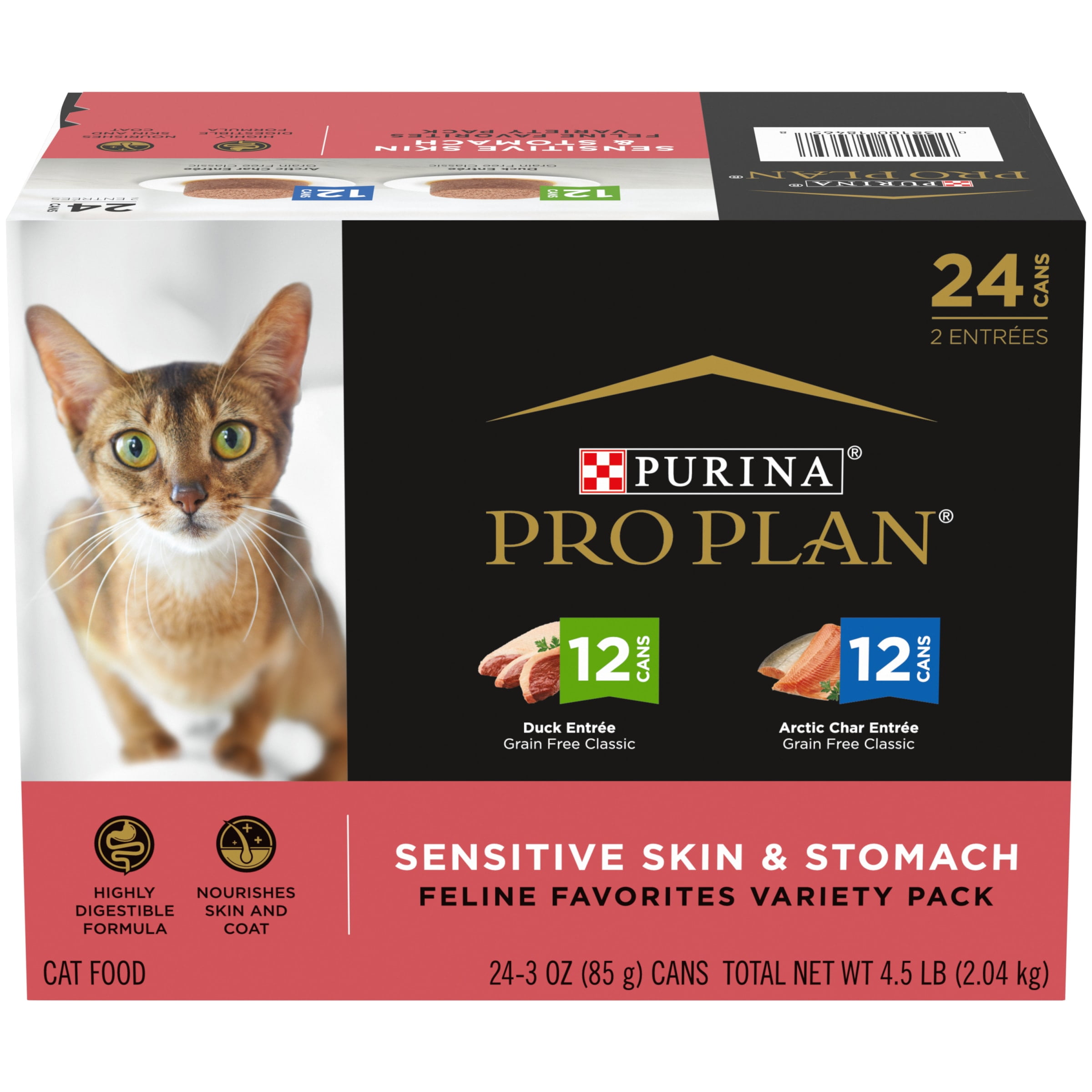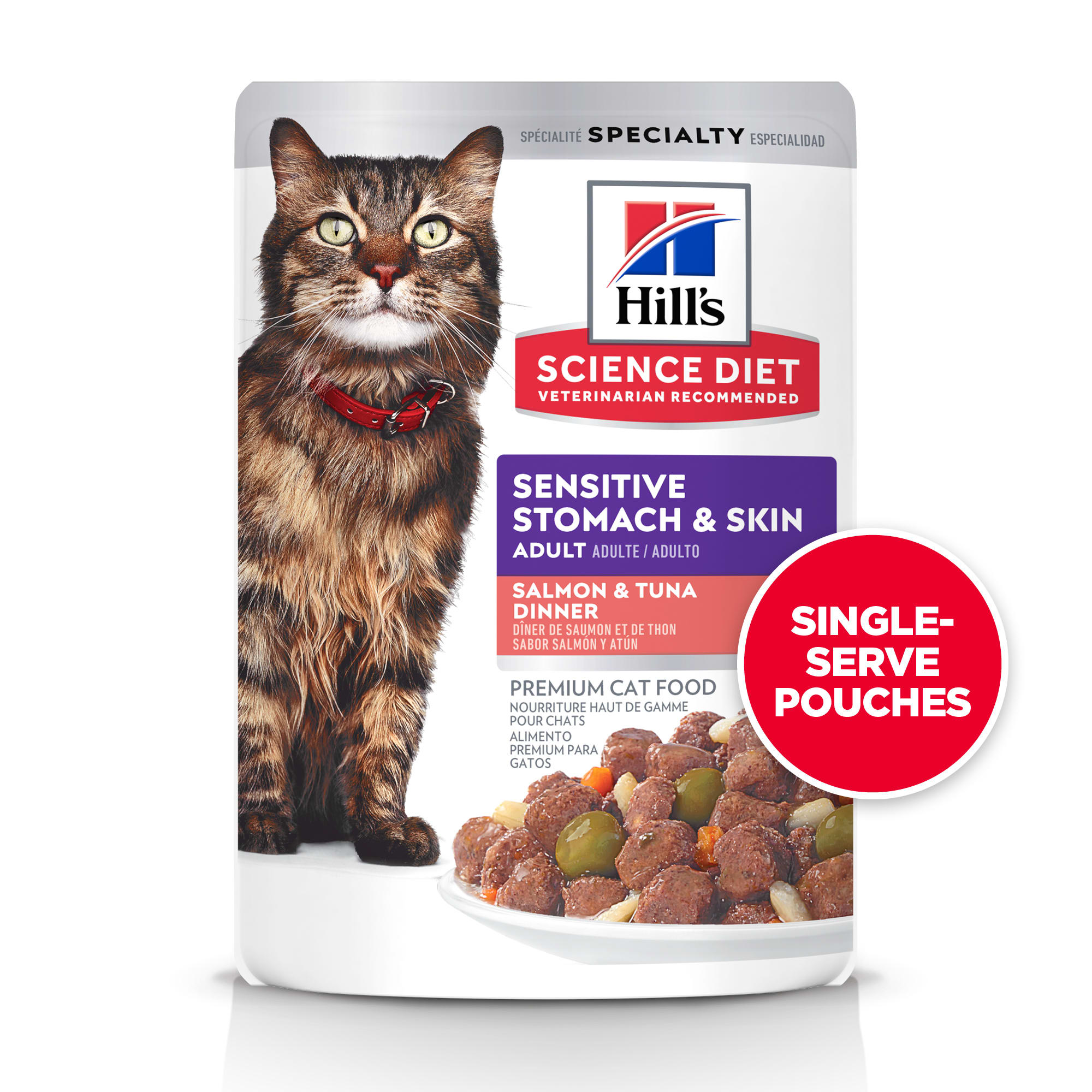
Wet Food for Kittens with Sensitive Stomachs: A Guide to Gentle Nutrition
A kitten’s early months are a crucial period of growth and development. Providing them with the right nutrition is paramount, but what happens when your adorable furball has a sensitive stomach? Diarrhea, vomiting, gas, and a general lack of appetite can be distressing for both you and your kitten. Fortunately, with careful consideration and the right choices, you can navigate the world of kitten food and find wet food options that are gentle on their digestive system while still providing the essential nutrients they need to thrive.
Understanding Kitten Digestive Sensitivity
Before diving into food choices, it’s important to understand why kittens might develop sensitive stomachs. Several factors can contribute:
- Immature Digestive System: Kittens’ digestive systems are still developing, making them more susceptible to dietary upsets. They may have difficulty processing certain ingredients or textures.
- Food Allergies or Intolerances: Like humans, kittens can develop allergies or intolerances to specific ingredients, commonly proteins like chicken or beef, or grains like wheat or corn. These trigger an immune response that manifests as digestive issues.
- Sudden Diet Changes: Abrupt changes in food can disrupt the balance of bacteria in the gut, leading to digestive upset. Introducing new foods gradually is crucial.
- Parasites: Intestinal parasites like worms can irritate the digestive tract and cause diarrhea or vomiting. Regular deworming is essential.
- Infections: Viral or bacterial infections can also cause digestive issues. Consult a veterinarian if your kitten shows signs of illness.
- Stress: Stressful environments or events can affect a kitten’s digestion. Providing a calm and secure environment is important.
Why Choose Wet Food for Kittens with Sensitive Stomachs?
While both wet and dry food have their advantages, wet food often proves to be a better choice for kittens with sensitive stomachs for several reasons:
- Higher Moisture Content: Wet food has a significantly higher moisture content (typically 70-80%) compared to dry food (around 10%). This extra hydration can help prevent dehydration, which is a common concern with diarrhea or vomiting. Adequate hydration is also essential for healthy kidney function.
- Easier to Digest: The softer texture of wet food is generally easier for kittens to chew and digest, especially those with sensitive stomachs or dental issues. The food is already partially broken down, reducing the burden on the digestive system.
- Fewer Fillers and Additives: High-quality wet food often contains fewer fillers, artificial colors, and preservatives than dry food. These additives can sometimes trigger digestive sensitivities in some kittens.
- Stronger Aroma and Flavor: Wet food’s stronger aroma and flavor can be more appealing to kittens with reduced appetites due to digestive upset. This can encourage them to eat and get the nutrients they need.
- Supports Gut Health: Certain wet food formulations include prebiotics, which promote the growth of beneficial bacteria in the gut, helping to maintain a healthy digestive balance.
Key Ingredients to Look For (and Avoid) in Wet Kitten Food for Sensitive Stomachs
When selecting wet food for your sensitive-stomached kitten, pay close attention to the ingredient list. Here’s what to look for and what to avoid:
Ingredients to Look For:
- High-Quality Protein Source: Choose a novel protein source that your kitten hasn’t been exposed to before, such as duck, rabbit, venison, or salmon. This can help rule out common protein allergies like chicken or beef. Ensure the protein source is listed as the first ingredient.
- Limited Ingredient Diet: Look for a limited ingredient diet (LID) formula. These diets contain a minimal number of ingredients, reducing the likelihood of triggering a reaction.
- Easily Digestible Carbohydrates: If carbohydrates are included, opt for easily digestible options like sweet potatoes or pumpkin. Avoid grains like wheat, corn, and soy, which are common allergens.
- Prebiotics: Ingredients like inulin, fructooligosaccharides (FOS), or mannanoligosaccharides (MOS) promote the growth of beneficial gut bacteria.
- Omega-3 Fatty Acids: These fatty acids, found in fish oil or flaxseed, have anti-inflammatory properties that can soothe the digestive tract.
- Probiotics: Live microorganisms that support a healthy gut microbiome. Look for specific strains like Lactobacillus or Bifidobacterium.
- Hydrolyzed Protein: In some cases, hydrolyzed protein diets can be beneficial. Hydrolyzation breaks down proteins into smaller peptides, making them less likely to trigger an allergic reaction.
Ingredients to Avoid:
- Common Allergens: Avoid common allergens like chicken, beef, dairy, wheat, corn, and soy.
- Artificial Colors, Flavors, and Preservatives: These additives can irritate the digestive system. Look for natural preservatives like vitamin E (tocopherols) or vitamin C (ascorbic acid).
- Carrageenan: This seaweed-derived thickening agent has been linked to inflammation in some animals.
- By-Products: Avoid foods that list "by-products" as a primary ingredient. These are often low-quality and poorly digestible.
- Excessive Fillers: Avoid foods that are high in fillers like cellulose or beet pulp.
- Sugar: Added sugar offers no nutritional value and can contribute to digestive upset.
Tips for Introducing New Wet Food:
- Gradual Transition: Introduce new wet food gradually over 7-10 days. Start by mixing a small amount of the new food with your kitten’s current food and gradually increase the proportion of the new food while decreasing the old food.
- Observe Your Kitten: Closely monitor your kitten for any signs of digestive upset, such as diarrhea, vomiting, or loss of appetite. If you notice any problems, stop the transition and consult your veterinarian.
- Small, Frequent Meals: Feed your kitten small, frequent meals throughout the day. This can help prevent overloading the digestive system.
- Fresh Food: Always offer fresh food and water. Discard any uneaten wet food after 30 minutes to prevent spoilage.
- Warm the Food: Slightly warming the wet food can enhance its aroma and make it more appealing to your kitten.
- Consult Your Veterinarian: If your kitten’s digestive issues persist or worsen, consult your veterinarian. They can help determine the underlying cause and recommend the best course of treatment.
Specific Wet Food Brands to Consider (Always consult with your vet before changing your kitten’s diet):
- Royal Canin Veterinary Diet Hydrolyzed Protein Kitten: Formulated with hydrolyzed protein to minimize allergic reactions.
- Purina Pro Plan Veterinary Diets EN Gastroenteric Feline Formula: Designed for cats with sensitive stomachs, easily digestible.
- Blue Buffalo Basics Limited Ingredient Diet Kitten Food: Limited ingredient recipe with a single animal protein source.
- Wellness Simple Limited Ingredient Diet Kitten: Another limited ingredient option with novel protein choices.
- Ziwi Peak Canned Kitten Food: High-quality, grain-free option with limited ingredients and a high meat content.
Beyond Food: Other Factors to Consider
While choosing the right wet food is crucial, remember that other factors can also contribute to your kitten’s digestive health:
- Regular Deworming: Follow your veterinarian’s recommended deworming schedule.
- Stress Management: Provide a calm and secure environment for your kitten.
- Cleanliness: Ensure your kitten’s food and water bowls are clean.
- Veterinary Checkups: Regular veterinary checkups are essential for monitoring your kitten’s overall health and addressing any potential digestive issues.
Conclusion
Dealing with a kitten with a sensitive stomach can be challenging, but with careful attention to their diet and environment, you can help them thrive. Choosing the right wet food, introducing it gradually, and addressing any underlying health concerns are key to ensuring your kitten gets the nutrition they need without digestive upset. Always work closely with your veterinarian to develop a personalized feeding plan that meets your kitten’s individual needs. Remember that patience and consistency are vital in managing a sensitive stomach and ensuring your kitten grows into a happy and healthy cat.

